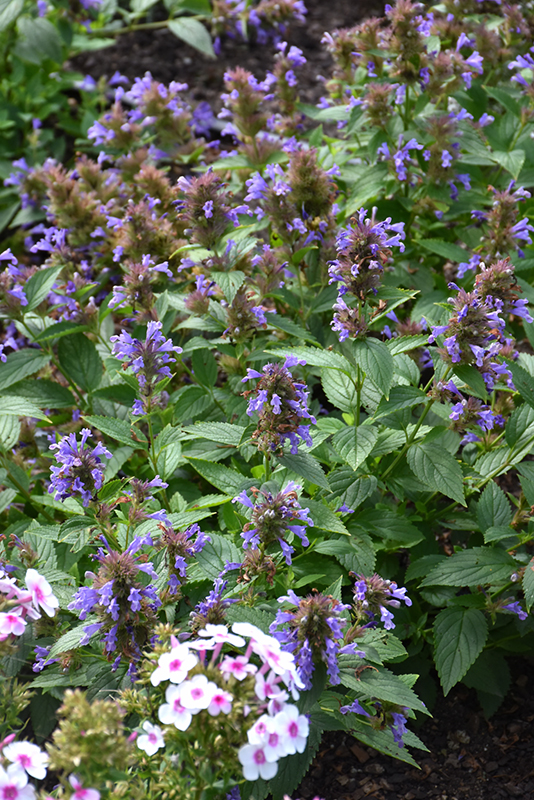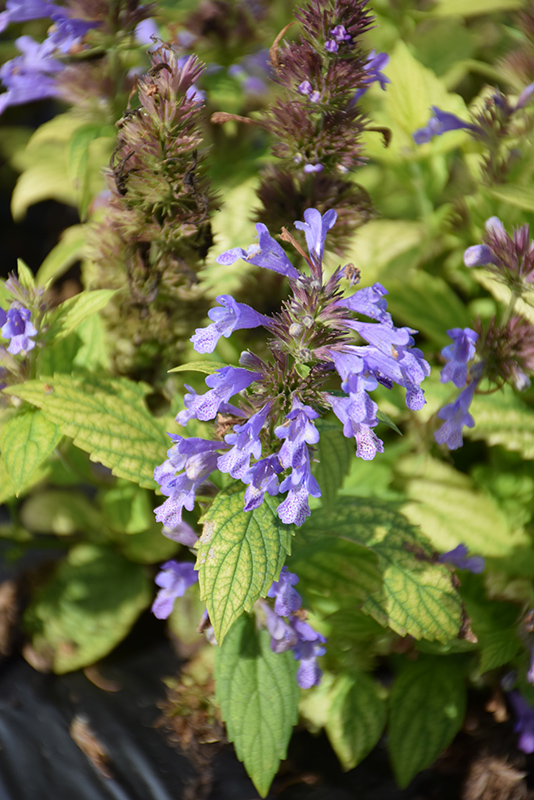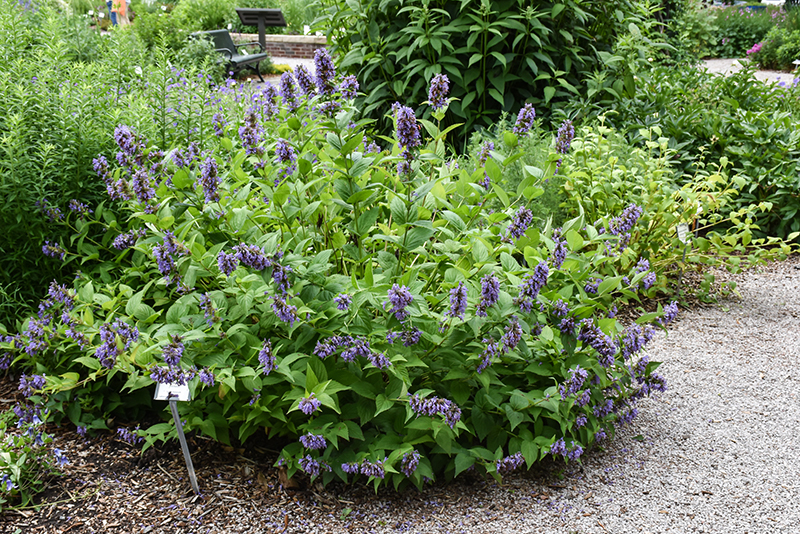>> Home
Prelude™ Blue Catmint
Nepeta subsessilis 'Balneplud'
Height: 3 feet
Spacing: 24 inches
Sunlight:
![]()
![]()
Hardiness Zone: 4
Other Names: Japanese Catmint
Group/Class: Prelude Series
Brand: Darwin Perennials
Description:
A beautiful catmint presenting very large blooms of violet-blue, with tiny purple spots, all the way up the stems, from early to late summer; attracts beneficial bugs to the garden; will bloom in waves all summer
Ornamental Features
Prelude™ Blue Catmint has masses of beautiful spikes of lightly-scented blue flowers with violet overtones and deep purple spots along the stems from early to late summer, which are most effective when planted in groupings. Its fragrant pointy leaves remain green in color with distinctive dark green veins throughout the season.
Landscape Attributes
Prelude™ Blue Catmint is a dense herbaceous perennial with a mounded form. Its relatively fine texture sets it apart from other garden plants with less refined foliage.
This plant will require occasional maintenance and upkeep, and is best cleaned up in early spring before it resumes active growth for the season. It is a good choice for attracting bees and butterflies to your yard, but is not particularly attractive to deer who tend to leave it alone in favor of tastier treats. Gardeners should be aware of the following characteristic(s) that may warrant special consideration;
- Self-Seeding
Prelude™ Blue Catmint is recommended for the following landscape applications;
- Mass Planting
- Border Edging
- General Garden Use
- Container Planting
Planting & Growing
Prelude™ Blue Catmint will grow to be about 3 feet tall at maturity, with a spread of 30 inches. When grown in masses or used as a bedding plant, individual plants should be spaced approximately 24 inches apart. Its foliage tends to remain dense right to the ground, not requiring facer plants in front. It grows at a fast rate, and under ideal conditions can be expected to live for approximately 10 years. As an herbaceous perennial, this plant will usually die back to the crown each winter, and will regrow from the base each spring. Be careful not to disturb the crown in late winter when it may not be readily seen!
This plant does best in full sun to partial shade. It is very adaptable to both dry and moist locations, and should do just fine under typical garden conditions. It may require supplemental watering during periods of drought or extended heat. It is not particular as to soil type or pH. It is highly tolerant of urban pollution and will even thrive in inner city environments. This is a selected variety of a species not originally from North America. It can be propagated by division; however, as a cultivated variety, be aware that it may be subject to certain restrictions or prohibitions on propagation.
Prelude™ Blue Catmint is a fine choice for the garden, but it is also a good selection for planting in outdoor pots and containers. Because of its height, it is often used as a 'thriller' in the 'spiller-thriller-filler' container combination; plant it near the center of the pot, surrounded by smaller plants and those that spill over the edges. It is even sizeable enough that it can be grown alone in a suitable container. Note that when growing plants in outdoor containers and baskets, they may require more frequent waterings than they would in the yard or garden.


